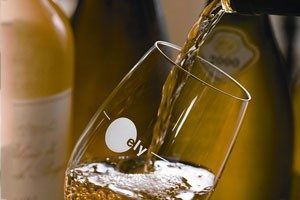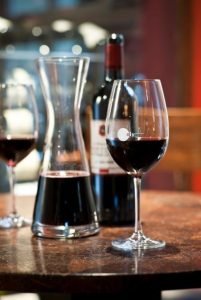Wine education and the promotion of healthy consumption.
Alcohol gets a pretty bad rep in the press these days, and often with good reason. The abuse of alcohol is undoubtedly one of the most serious concerns affecting our society today, and it would be irresponsible to argue otherwise. But amidst all the noise it is easy to forget that moderate alcohol consumption, particularly that of wine, can be a positive thing.
Why wine in particular? Well, it has proven health benefits which other alcoholic beverages simply do not share. Many beers and ciders on the market today are more sugar than anything else, and while the rise in popularity of craft beers has resulted in better quality products, they still have little in the way of beneficial properties. Spirits, though they have their place, are much the same.
Wine, however, has been around for a very long time, and over those years has been the subject of countless studies. The positive effects of wine consumption are numerous and said to include the following – preventing cancers and memory loss, reducing the risk of dementia, heart disease, stroke and type 2 diabetes. It is said to slow the aging process, and even prevent weight gain. How good is that? Another benefit which is often overlooked is the reduction of stress. We live busy, active, often hectic lives and stress is something which affects many of us more often than we’d like.
The important factor here is moderation. As with anything we consume, the amount and the manner in which we consume it can greatly alter the effect it has on our health. This is where wine education can play a part. The first thing we teach is that tasting wine requires not just the palate, but also the mind. Too often we drink but don’t think, the first sip of wine passes the “palate test” and then we just quaff away. When learning about wine tasting we examine the affect wine has on the different parts of the palate – on the tip of the tongue where sweet or fruity flavours are sensed, the sides of the tongue where we notice acidity, or on the gums where we feel the tannin. So, when we taste in this manner, we engage not only our mouth but also our mind, paying far closer attention to the flavours and sensations we are experiencing. How does this promote moderation? We learn to savour. Every sip of wine becomes a taste experience in itself, and we instinctively consume the wine at a slower pace, allowing for greater enjoyment of each mouthful. It is often said that knowledge increases enjoyment, and that is most certainly true of wine. The more we think about what we are drinking, the more we can enjoy and appreciate the complexities and subtleties of what is in our glass. In ely we have a saying “drink less but drink better” and that is something which usually follows on from learning more about wine -we are less inclined to consume an average wine just for the sake of it, but we will gain far greater enjoyment from a good glass of wine when we decide to treat ourselves.
The other factor to take into account is the quality of the wine, and I stress quality, not price. We see our supermarket shelves awash with processed, packaged and pre-prepared foods and the same has happened to the wines we are offered, where the lowest possible price seems to be the primary concern. The reality is this, extremely cheap wines are the equivalent of fast food. They may serve a basic need, but they deprive us of the nourishment and benefits usually associated with consuming good produce. For this reason, the quality of the wine becomes important- the less pesticides used in the vineyard, the fewer chemicals and sulphites added to the wine the better the quality of the end product. Do organic and biodynamic wines always taste better- not necessarily. Are they better for us- absolutely.
Wine has been enjoyed by countless generations for its positive social and cultural influences and contribution to general health and well-being. The more we learn about it, the greater our own enjoyment and appreciation becomes. Take time to drink well.
To learn more about wine tastings and courses contact Ian@elywinebar.com or visit www.elywinebar.ie/staging


